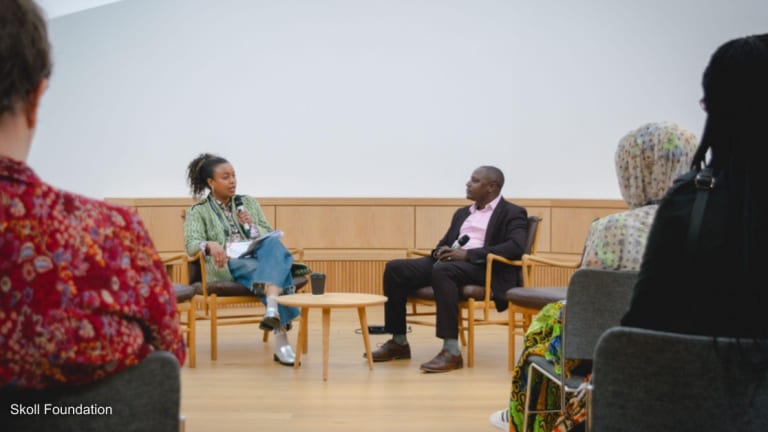
We’ve all heard of compassion fatigue. But what exactly is it?
It is a state experienced by those helping people in distress. It is an extreme devotion to those being helped to the degree that it can cause a secondary traumatic stress for the helper.
Even though compassion fatigue is common, it can be difficult for those who suffer from it to accept that it is happening to them. This is because empathetic and giving people may find it hard to admit that their needs are important too. The realization there is a limit to compassion — even if that limit is shared by all other people — can induce guilt and even shame. The understandable response is to deny or downplay one’s own stress, discomfort and fatigue.
Opinion: For aid workers, is burnout part of the job description?
Burnout among aid workers has unique triggers. Humanitarian psychologist Alessandra Pigni gives tips for recognizing burnout — and how organizations can prevent it in the first place.
Given this reality, it is critical that aid workers and helpers are able to identify their compassion fatigue. One way is to monitor your own performance. Any type of unrelenting fatigue, including emotional fatigue, negatively impacts the efficacy of your work.
It is also useful to monitor your attitude. Cynicism and guilt are two hallmarks of compassion fatigue. Sufferers may experience cynicism toward one’s work, one’s organization and even those one is assisting. The cynicism in turn may provoke a sense of guilt: “After all, my fatigue is nothing compared to the issues my clients are facing.”
A combination of a persistently cynical attitude, guilt and diminished performance can affect the morale of teams and, if not addressed, it can harm one’s career and relationships. Therefore, it is imperative to identify and address compassion fatigue.
Talk to family, friends and co-workers about compassion fatigue and be open to their evaluation of where you are on the fatigue continuum. They can often analyze a situation much more objectively, and kindly point out issues that might need attention.
Ideally, this kind of regular outside objective assessment is built into an organization’s processes and procedures. Post-assignment debriefings can be very helpful in this regard. The challenge is to plan these assessments into an entire assignment. That’s the best way to identify and address compassion fatigue early, before it harms an employee and possibly those they assist. It is also a good way for an organization to demonstrate commitment to duty of care.
What can individuals do if they learn their feelings of stress and diminished effectiveness are the result of compassion fatigue?
The first step is to rediscover that life is larger than the immediate situation, no matter how important it is. That can be very difficult, especially in disaster or conflict situations where the stakes can be literally life and death. But it’s essential to putting one’s own work in context and making necessary changes to enable aid workers and others to effectively pursue their missions.
Aid workers witnessing: What are the impacts on aid workers?
Aid workers witnessing can be an important way of communicating with the outside world on human rights or other abuses occurring within developing countries. But what are the impacts on aid workers? It was a question Elizabeth Lennon addressed with research findings presented at the Asia Pacific Humanitarian Leadership Conference.
One way to regain perspective is to restart activities that you may have stopped doing as work demands intensified. These include prioritizing sleep, fitness routines, reading, having dinner with friends and other simple activities that give pleasure and enhance well-being.
Another way is to try something different. Walk instead of drive. Try a new restaurant. It’s surprising how focusing on simple acts like these can alter a person’s perspective and allow one to see things in a new light.
Nothing beats talking about one’s feelings and needs. This can be done with a professional. Or it can be done with a trusted friend or family member, someone who will not judge and will encourage proper self-care. If you can, it’s very helpful to identify people ahead of time and establish an agreement to talk when you find it necessary. Finally, a vacation (even an intentional weekend away from work/phone/etc.) is an invaluable prescription for this very real issue.
Compassion fatigue is natural. And it is real. It can have dramatic effects on a person’s career, self-esteem and relationships with others.
But it can also be managed and even reduced through thoughtful and proactive individual and organizational interventions. The employee benefits are profound, while the organizational gains make addressing compassion fatigue a key part of effective staff care.
Join the Devex community and access more in-depth analysis, breaking news and business advice — and a host of other services — on international development, humanitarian aid and global health.




